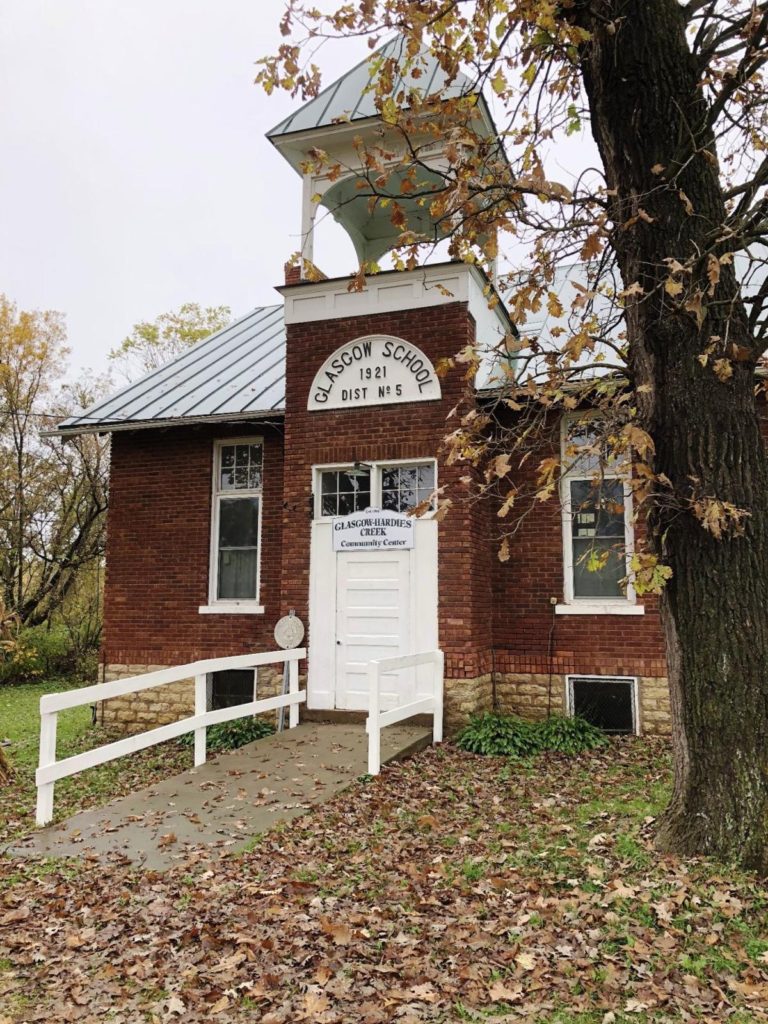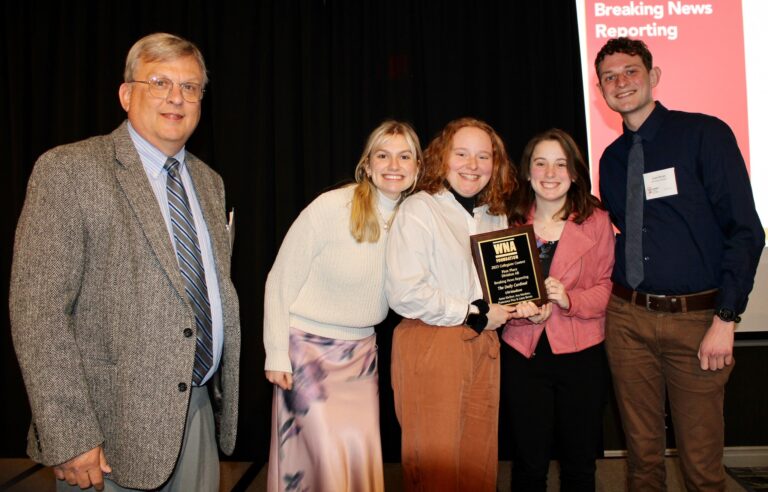Back Home by Chris Hardie
» Download this column as a Word document
» Download photos that accompany this story
» Chris Hardie’s headshot
As we grow longer in the tooth, I sometimes hear myself and others say that we long for the old days.
It’s easy to reminisce and put a warm and fuzzy spin on our perception of the old days. One even sees it on social media as people post “remember when” memes that stir the longing for simpler times.

I thought about this one day recently, when I passed through the area where my great-great-great-grandparents settled in 1854. James and Margaret Hardie came to the area now known as Hardie’s Creek after spending two years mining in Maryland. They came from the Glasgow region of Scotland; a local post office by the same name was established in southern Trempealeau County east of Galesville along the Black River.
Grandpa James was described in the book “A History of Trempealeau County” by Eben Douglas Pierce “as an early settler and a sturdy Scotchman.” It’s good to hear that I am not descended from a timid and spineless wimp.
He needed to be sturdy. His parents died when he was young and the fever also took two of his brothers. James went to work on local farms until he came to America, where the hardships of pioneer life were many.
Pierce describes the challenge: “Their farming methods at first were crude and for years they suffered the hardships incident to pioneer life, but with Scotch tenacity, they stuck to the work while they established comfortable houses and were deriving a good living from the soil.”
Let’s see; rude farming methods, hardships and Scotch tenacity sound like my attempts at agriculture. I’m still working on that deriving a good living part, though.
But this tiny Scottish enclave was forever changed by an event in 1860. That’s when Christian Larson Hoff and Gilbert Emerson Ekern crossed the Black River from La Crosse County and came to Hardie’s Creek.
It was the crossing of the Rubicon; the Norwegians had arrived. And they came in hordes like their Viking descendants. As a result, all the James lineage that leads to me married Norwegians and Germans, which means that my Scottish heritage is 6.25%, like a very diluted single malt.
My wife, Sherry, claims she’s 12.5% Scottish, which of course makes her twice the Scot as me — a fact she enjoys telling customers in our winery. Neither of us has done genetic testing, so it might be interesting to verify our claims.
Very little remains today of the tiny settlement of Glasgow along Wisconsin Highway 54, with the exception of the former school that still serves as a community center. Many of my relatives attended school or taught there before it closed in the 1960s. Nearby is Glasgow cemetery where James, Margaret and others were laid to rest.
I stopped at the community center on a gloomy fall day for a photo. Just as I pulled in, a nearby neighbor also stopped to walk his dogs. We commenced doing what my grandmother would call “visit” and found plenty of family connections.
Margaret died in 1888, leaving behind five sons — including my great-great-grandfather Thomas — and four daughters. James remarried; he died Feb. 25, 1908, at the age of 79.
On my drive home, I passed by the farm where Grandpa Thomas once toiled and where his son Raymond was born. I also passed the former farm of my great-Uncle Vilas Steine, a brother to my father’s mother. The buildings stand idle like many farms these days, but they still looked picture-perfect with the autumn hills in the background.
Just over the hill, I came to the spot where in 1923 Grandpa Raymond moved his family, about 8 miles from where he grew up. His son, Keith, helped build the house where I now live; he later became a state legislator and U.S. Marshal. His son, Robert, moved his family here in 1970 and took over the family farm.
I was home.
Four generations of Hardies have toiled in these hills. This generation had work to do. There was wood to cut and animals to feed. Cold weather was on the way.
I may be diluted, but there’s still enough sturdy Scottish in my blood to prevail. Hardie, after all, means brave.
I can only look up to the model created by Grandpa James, as summarized in a Hardie clan writing from 1990: “Left as an orphan in early life and upon his own resources he has by industry and economy succeeded competency.”
Chris Hardie spent more than 30 years as a reporter, editor



